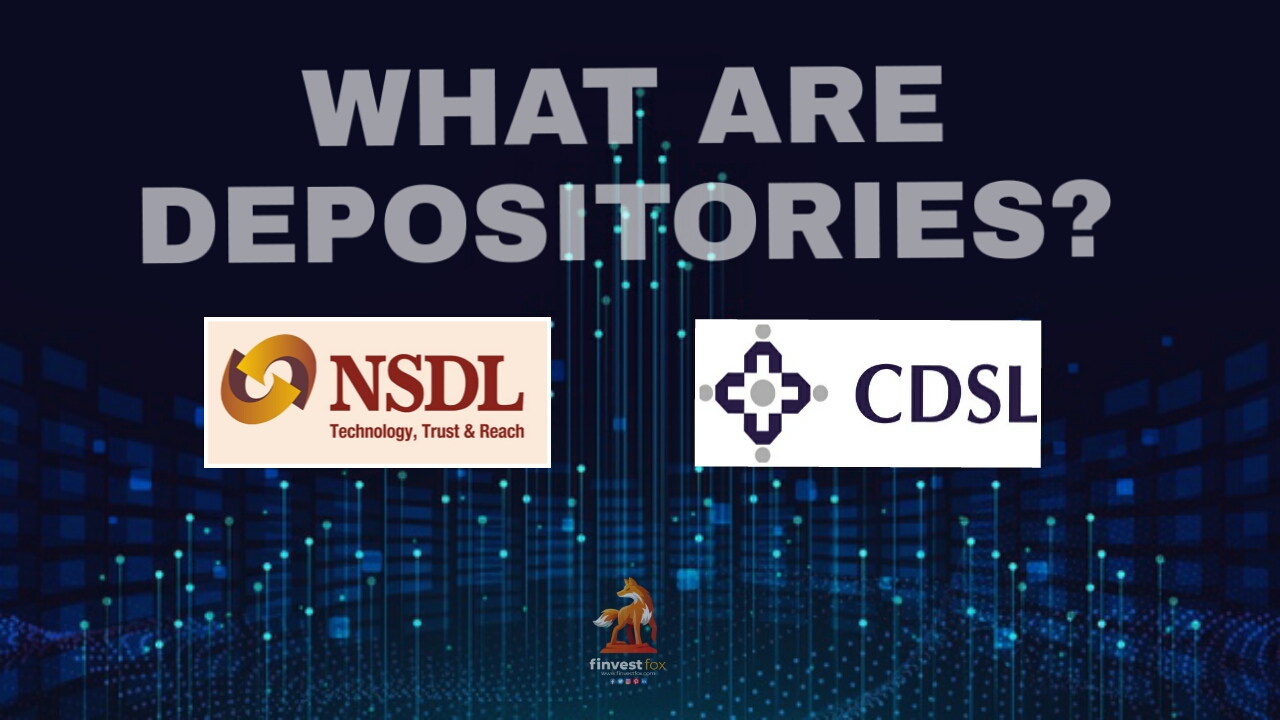If you have
a Demat account in India under any broker, you will get tagged with either NSDL
or CDSL as your depository depending upon your depository participant (DP). You
will be hearing from them through Emails or SMSs sometimes.
Let me ask
you a question.
Cash &
FD : Banks :: Shares : _____?______
Can you solve
this riddle? If you are not sure about the answer then you are at the right
place. Let me explain…
We mostly deposit
our money in banks. This will not only safeguard our money but enables us to do
a wide variety of transactions. When we put money as FD, it will give us
returns in the form of interest.
In both the
case there is money in our account. But is it physical? The answer is no. We
put our physical money into our account and withdraws it into our hands
physically. But what our bank account contains is money in its electronic form.
Similarly, a
share depository helps you store your shares or securities in the electronic or
dematerialized (demat) form. The buying, selling, and keeping of the shares are
done with the help of a depository. Thus, a depository acts as a custodian.
Now I think
you know the answer to the above question. YES…it is Depositories.
What are Depositories?
In earlier
days when the technology was not so developed and the internet was not
established, the Stock Market was offline. Shares were held in the form of
paper certificates. This was very risky as this paper can be torn or lost.
Later with
the development of technology, the internet revolutionized the World and most
things started their shift to online. The Stock Market also became online and
easy to access.
When the
Stock Market was making their shift to its online approach, better and safe
methods of keeping the shares or securities and the record of trading was
introduced in the form of demat. For keeping these records and maintaining
these demat accounts depositories were formed.
Working of Depository
When you buy
a share, it is credited to your Demat account, and when you sell it, the security
is deducted from your Demat account.
So, what
role does a depository account play in this scenario?
A Demat
account serves as a conduit between you and the depository, which holds your
shares. The shares are kept by the depositories when you create a Demat account
to acquire shares.
Another
important role that depositories play is when companies need to distribute
dividends to their shareholders, they need information about their investors,
which is where share depositories come in handy to them.
These are
different services offered by the depositories,
- Maintenance of Demat accounts
- Rematerialization and dematerialization
- Trade settlement
- Share transfers
- Market and off-market transfers
- Distribution of non-cash corporate actions
- Nomination/transmission
- Account opening
- Account statement
- Changing account details
NSDL & CDSL
- National Securities Depository Limited (NSDL)
- Central Depository Services (India) Limited (CDSL)
It was
during the late 90s that Indian Stock Markets digitalized. After the
digitalization, there was a requirement for a depository, to hold the securities
in the dematerialized form. For that, the National Stock Exchange came up with
NSDL in 1996 through the depositories act.
Following
this, the CDSL was established by the Bombay Stock Exchange in 1999. These are
national share depositories linked by the Securities and Exchange Board of
India (SEBI), the country's market regulator.
In India,
every stockbroker must register with at least any one of the 2 central
depositories to work and they are depository participants (DP). Each broker is
assigned a unique DP number by the depository they are registered with.
To know more about Discount Brokers, click here
The difference between NSDL and CDSL
There is no
point in having a debate on which is a better depository as it is irrelevant from
a market participant's perspective. Your DP chooses a depository, but there is
no conclusive response as to why they picked that depository or whether they
perceive anything superior in it. There may be a variation in the fees charged
to depository participants by various depositories.
You can't choose between CDSL and NSDL. It is
up to your DP to make that decision. Larger depository players like State Bank
of India, HDFC, and many more are registered in both NSDL and CDSL. Your investment
decisions, portfolio performance, and returns have nothing to do with the
depository with which your DP is connected.
To open an account in Upstox, click here
To open an account in Zerodha, click here
To open an account in Groww, click here







0 Comments